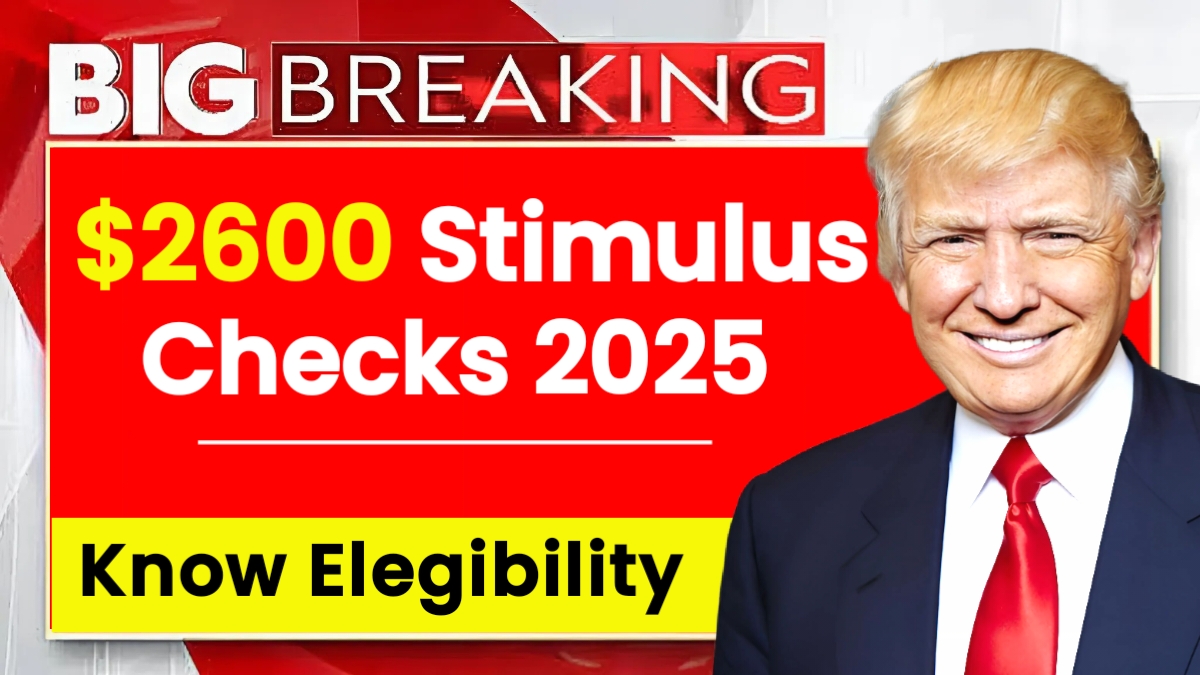$2600 Stimulus Checks 2025: Recent claims circulating across news channels and social media platforms regarding $2600 stimulus checks for senior citizens and disabled Americans have garnered significant attention. This article aims to provide a comprehensive analysis of these claims and clarify the current situation surrounding federal stimulus payments.
The United States government previously distributed three rounds of stimulus checks starting in March 2020 as part of COVID-19 relief efforts. These payments were designed to provide immediate financial support during the pandemic and help stabilize the economy. However, the current claims about $2600 payments require careful scrutiny.
Analyzing Current Claims
The widely circulated information suggests that the Internal Revenue Service (IRS) plans to distribute $2600 stimulus checks, particularly targeting senior citizens and disabled individuals facing financial hardships. These reports have spread rapidly across various platforms, including Facebook and X.com, creating significant public interest.
Misinformation Landscape
It’s crucial to understand that many of these claims stem from unreliable sources seeking to generate website traffic and social media engagement. Financial assistance is a particularly sensitive topic for Americans, especially in the post-pandemic economy, making it an attractive subject for misinformation campaigns.
Fact-Checking
the Claims Current evidence indicates that these reports about $2600 stimulus checks are unsubstantiated. While the information has been crafted to appear credible, it lacks official backing from government authorities. The IRS has not announced any new stimulus payment programs for 2025.
Potential Eligibility
Requirements Should any future stimulus payments be approved, they would likely follow similar eligibility criteria to previous distributions. These typically include:
- U.S. permanent residency status
- Valid Social Security number
- Income thresholds (historically $75,000 for individuals)
- Current receipt of social security benefits may be considered
Distribution Process
Understanding If legitimate stimulus payments were to be approved, the IRS would likely follow established distribution methods. Direct deposits would typically be processed first, followed by paper checks and debit cards. The exact timeline would depend on various factors, including banking processes and chosen payment methods.
Government Response and Verification
The federal government has not confirmed plans for new stimulus payments in 2025. While some financial assistance programs continue to operate, no large-scale stimulus check program is currently authorized or planned for implementation.
Impact on Seniors and Disabled Americans
Many seniors and disabled individuals continue to face financial challenges, particularly due to inflation and rising living costs. While the claimed $2600 stimulus checks are not currently real, various legitimate government assistance programs remain available through established channels.
Protecting Against Misinformation
To avoid falling victim to false claims about stimulus payments, citizens should:
- Verify information through official government websites
- Be skeptical of unsourced social media claims
- Check IRS.gov for legitimate announcements
- Consult financial advisors for guidance on available assistance programs
Current Economic Support Programs
While new stimulus checks aren’t currently planned, various federal assistance programs continue to operate. These include Social Security benefits, Supplemental Security Income (SSI), and other targeted support mechanisms for eligible citizens.
Future Considerations
Economic assistance programs continue to evolve based on national needs and circumstances. While immediate stimulus checks aren’t planned, policy makers regularly evaluate the need for various forms of financial support for vulnerable populations.
The claimed $2600 stimulus checks for 2025 appear to be misinformation rather than legitimate government policy. While financial assistance remains important for many Americans, particularly seniors and disabled individuals, it’s crucial to rely on official sources for accurate information about government benefits and support programs. Citizens should remain vigilant against misleading claims and verify information through authorized government channels.







